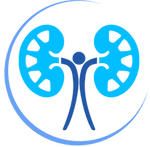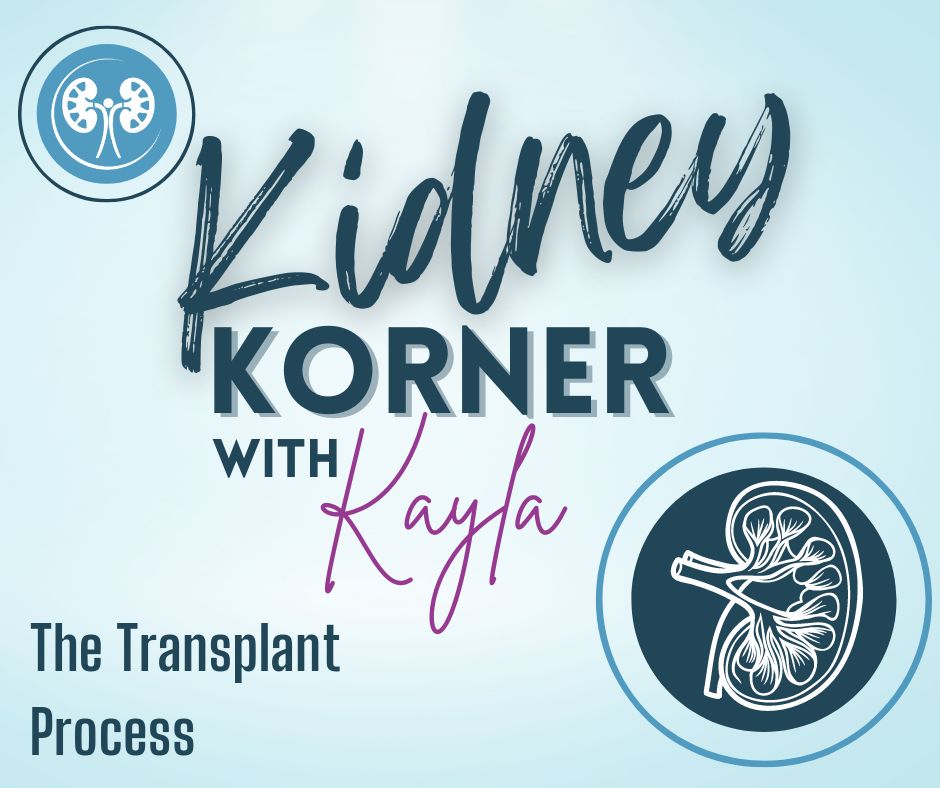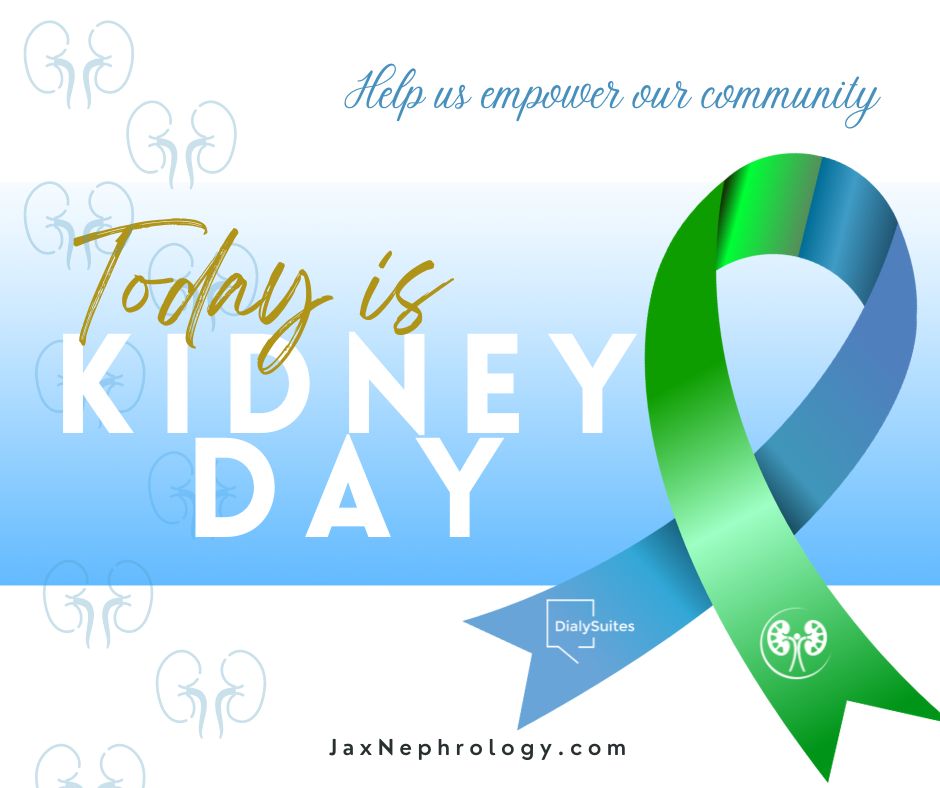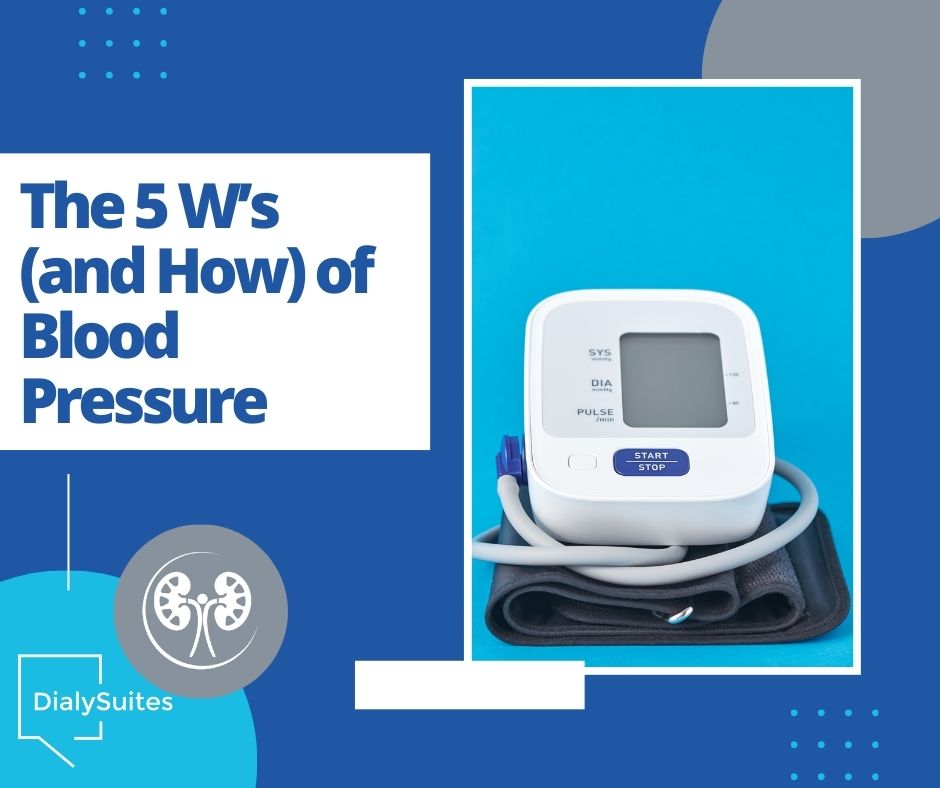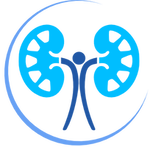|
Did you know that, in some cases, kidney disease is preventable? While genetics can play a part, overall general health is one of the biggest factors in the risk for kidney disease. Let’s explore four ways you can get healthy for your kidneys!
Getting healthy looks different for everyone, so start small and don’t overwhelm yourself. Being 1% better than yesterday is still an improvement. If you have questions or concerns about your kidney health, make an appointment with your Primary Care or Dr. Munjal to discuss. As always, stay safe and healthy! Did you know that dialysis isn’t the only option once you need to consider renal replacement therapy? Transplantation is also an option! Let’s break down what a transplant is, who qualifies, and how the process works. What is a kidney transplant? A kidney transplant is when a healthy kidney from a living or deceased donor is placed in the abdomen alongside the failing kidneys. A kidney transplant does not cure kidney disease, but it may allow you to live longer and improve overall quality of life. Who qualifies for a kidney transplant? Patients with Chronic Kidney Disease (CKD) may initiate the process to be evaluated for a kidney transplant. You can begin the evaluation process for a transplant before you need dialysis, usually after you reach Stage 4 CKD. By starting the process early, you may be able to reduce your overall waiting time on the transplant list. How do I get placed on the transplant list? To initiate the evaluation process, your medical history and insurance will be reviewed from a referral sent by your nephrologist to the facility of your choosing. If, after reviewing the preliminary insurance and medical records, you are found to be a candidate, additional testing will be ordered by the transplant center. These typically include but are not limited to:
After you have completed all the screenings, consultations, and testing assigned by the transplant center, your case will be moved to the center’s transplant committee to be reviewed and receive the final approval. Once approved by the transplant committee, you will become active on the transplant list and you have satisfied any additional requirements as communicated by the center, you will be active on the transplant list. It is important that you maintain your health status and update your care team with any new illnesses or hospitalizations, as these can affect your transplant list status. What happens after I get my transplant? After you undergo your kidney transplant, you will be closely monitored by your transplant care team. This includes frequent lab work and examinations. Your ongoing and post-transplant care will be discussed and coordinated by the transplant center. Talk with your nephrologist to learn more and decide what works best for you. You have options. Happy World Kidney Day! We are so excited to help empower our community with information about the kidneys. We want to take today to bring you back to the basics and teach you about all the wonderful things the kidneys do within the body. We’ll share the basics, some fun facts, frequently asked questions, and how our team gets involved with empowering others.
The Basics: Located in the back, just below the ribcage, the kidneys are fist-sized, bean-shaped organs. They have 6 major functions:
Fun Facts:
Q: What do kidneys have to do with my blood pressure? A: Your kidneys play a vital role in your blood pressure management. Your kidneys control your electrolyte balance which, in turn, affects your fluid balance. An increase in fluid volume of the blood increases your blood pressure. Additionally, in some cases, the adrenal glands on top of the kidneys influence certain hormone levels that are connected to blood pressure management within the body. Q: But I don’t have symptoms and I feel fine. How do I have Chronic Kidney Disease? A: Your kidneys and body are miraculous machines. Oftentimes, symptoms of Chronic Kidney Disease do not manifest until you are in the later stages. This is why regular lab tests are critical to keep up with as they can detect changes in your kidney function before the symptoms begin. Q: How much water should I be drinking? A: Let’s start by clarifying: we talk about fluid consumption, not water consumption alone. Water is a fluid and should be calculated into your daily intake, but other fluids need to be included as well. Coffee, tea, milk from cereal, and broth from soup are all examples of fluids that should be calculated into your daily fluid intake. There is no set amount of fluid that a person should be drinking per day, as all of our conditions are different. As a general rule of thumb, if you sweat more, you need to drink more. Dialysis and Congestive Heart Failure (CHF) patients are on a fluid restricted diet and should abide by physicians’ orders. Q: Does cranberry juice work for the kidneys? A: No! Cranberry juice can help to alleviate symptoms of a Urinary Tract Infection (UTI), but does not cure it or make it go away. Untreated UTIs can cause kidney or prostate infections. These are more serious as it can travel to the blood and cause sepsis. UTIs are generally treated by Primary Care or Urologists for chronic infections. How We Get Involved: Our team is working hard at getting healthy for our kidneys. We have embarked on a month-long step challenge that not only includes walking, but nutrition and health tracking. With some knowledge, hard work, and a little friendly competition, we are empowering ourselves to help continue empowering and encouraging our patients. Additionally, we walk with the National Kidney Foundation for their annual Kidney Walk to raise awareness for kidney diseases. Join us or walk virtually this year at Riverside park on Sunday, May 19th, at 7:30am. Learn more at https://www.kidneywalk.org/jacksonville. What: Blood pressure measures the pressure of the circulating blood against the walls of the blood vessels. This is the measurement of the amount of force the body is using to get the blood through the arteries.
Who: Patients with hyper- or hypotension should take their blood pressure daily to monitor for any trends and changes. Patients with other heart or endocrine conditions should check their blood pressure regularly as well. When: Take your blood pressure one-two (1-2) hours after taking any blood pressure medications and when you are relaxed. By doing this, we can measure the effectiveness of the medications and make adjustments as needed. If the blood pressure is taken before medications have been taken and given time to enter the system, there is no way for us to know the effectiveness of your medication or treatment. If your blood pressure reading seems significantly out of your normal range, wait 5-10 minutes, breathe deeply, and then take it again. We will usually go with the second reading as being more accurate. Where: Take your blood pressure at a table or desk setting. You want to be in a seated position with uncrossed legs and with your arm, the cuff, and your heart around the same level. Why: By following these guidelines, we are able to get the most accurate results. Consistent, accurate readings help us make the most informed decisions regarding your care. Readings can be distorted and inaccurate due to body position, clothing/jewelry, altered medications, talking, moving, and more. How: Listed below are step-by-step instructions on how to take a proper blood pressure reading. You can also visit our Kidney Korner post for more information on how to take your blood pressure.
https://www.jaxnephrology.com/blog/kidney-korner-how-to-take-your-blood-pressure We are here to help get you on the right track. By understanding why and how to take your blood pressure, you are making the most important steps in the right direction. Do not make any significant changes without consulting your physician or care team. As always, stay healthy! |
About The BeanThe Bean is a blog on a mission to share valuable information in the world of Nephrology. We believe in empowering through education and The Bean is a great place to find resources and information on topics related to high blood pressure, kidney disease, dialysis, and topics that enhance the kidney minded lifestyle. Enjoy and be sure to subscribe! Archives
July 2024
Categories |
Contact Us |
Careers |
Connect With Us |
|
13241 Bartram Park Blvd., Suite 1001
Jacksonville, FL 32258 Open Map Tel: (904) 260-9898 Fax: (904) 260-9891 |
Interested in joining our team? Jacksonville Nephrology is dedicated to compassionate patient care through teaching and giving our team the tools needed to go above and beyond. Learn more about current openings. Learn More
|
